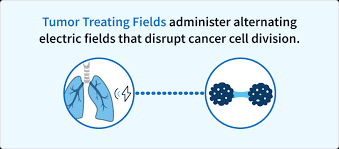The Future of Cancer Treatment: What You Need to Know About the Latest Innovations

In the vast realm of medical science, few topics have garnered as much attention, research, and emotion as cancer. This formidable disease has been a persistent adversary, challenging scientists, doctors, and patients alike. Yet, as we stand on the cusp of a new era, there’s a palpable sense of hope. With the relentless pace of scientific advancements, we are witnessing groundbreaking innovations that promise to reshape the landscape of cancer treatment. This article aims to shed light on some of these cutting-edge developments, making the complex world of cancer research accessible to patients at The Best Cancer Hospital in Vijayawada.
Stem Cells and Cancer Treatment
Our intestines play a crucial role in our health. They have tiny units called crypts made of cells that protect us from harmful substances. These cells can repair and replace themselves thanks to something called intestinal stem cells. These special cells can change into different types of cells, helping keep our gut in top shape.
However, the small intestine and the large intestine have different stem cell behaviors. This difference might be a reason why some cancers, like colorectal cancer, are more common than others. By studying these stem cells, we can get clues about new ways to treat or even prevent certain cancers.
- Nature of Stem Cells: Stem cells are unique because they can turn into many different types of cells. This ability makes them a valuable tool in medical research. Scientists are studying how to use stem cells to replace damaged or destroyed cells in the body.
- Personalized Treatment: One of the most exciting prospects of stem cell research is personalized medicine. In the future, doctors might be able to use stem cells to create personalized treatments for cancer patients. This means treatments would be tailored to each person’s unique needs, making them more effective.
- Targeting Cancer Cells: Some researchers are working on ways to use stem cells to deliver treatments directly to cancer cells. This could mean targeting the bad cells without harming the good ones, which would reduce side effects.
- Stem Cells and Immunity: Another area of research is looking at how stem cells can boost the body’s immune system to fight cancer. By enhancing our natural defenses, we might be able to combat cancer more effectively.
- Challenges and Ethics: While stem cell research offers a lot of promise, there are challenges. Some methods of obtaining stem cells are controversial. Scientists and ethicists are working together to find solutions that are both effective and ethical.
Understanding Desmoid-type Fibromatosis
Desmoid-type fibromatosis (DTF) is a unique kind of tumor. It affects people differently. Some might feel a lot of pain, while others might not have many symptoms. By studying this disease, doctors can understand how it impacts patients’ lives. This knowledge can help doctors provide better care and improve patient’s quality of life.
P2X Receptors in Cancer Treatment
A recent focus in cancer research is on P2X receptors. These are parts of cells that can receive signals. Scientists believe these receptors might be a new way to treat diseases, including cancer. By understanding how these receptors work, we could discover new methods to combat cancer.
What are P2X Receptors?
- P2X receptors are special proteins found on the surface of many cells in our body. They act like gatekeepers, allowing certain substances to enter or leave the cell when they receive specific signals.
Role in the Immune System:
- These receptors play a vital role in our immune system. When they detect harmful substances or damaged cells, they can send signals that activate our body’s defense mechanisms.
Potential for Targeted Treatments:
- One of the exciting things about P2X receptors is their potential for targeted cancer treatments. Instead of treatments that affect the whole body, scientists are exploring ways to target these receptors specifically on cancer cells. This could mean fewer side effects and more effective treatments.
Drug Development:
- Several drugs are being developed to target P2X receptors. These drugs aim to either enhance or block the activity of these receptors, depending on the type of cancer and its behavior.
Challenges and Future Research:
- While the potential is vast, there are challenges. Not all cancers respond the same way to P2X receptor targeting. Researchers are working hard to understand these differences and develop treatments that can be personalized for each patient.
Conclusion
As we reflect on the innovations highlighted, it’s evident that the future of cancer treatment is not just about new drugs or therapies. It’s about a holistic understanding of the disease, from the cellular level to the patient’s experience. The strides we’re making today are the result of decades of dedication, collaboration, and resilience. While challenges remain, the horizon is bright with promise. For every individual who has been touched by cancer, directly or indirectly, these advancements from Best Cancer Hospital in Hyderabad offer not just hope but a testament to human ingenuity and the relentless pursuit of a world free from the shadow of cancer.




